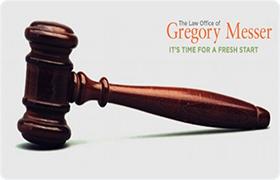Fresh Meadows Bankruptcy & Debt Lawyer, New York, page 3
Sponsored Law Firm
-
 x
x

Click For More Info:
-
Law Offices of Gregory Messer
26 Court Street Suite 2400 Brooklyn, NY 11242» view mapBankruptcy & Debt It's Time For A Fresh Start
Experienced bankruptcy attorney Gregory Messer will work with you personally to set your mind at ease and relieve the strain you’re facing from personal or business debt.
800-887-8940
Rhoda Y. Andors
Administrative Law, Reorganization, Wrongful Termination, Civil Rights
Status: In Good Standing
David Minsoo Pyun
Real Estate, Immigration, Bankruptcy & Debt
Status: In Good Standing Licensed: 22 Years
Peter Mathew Agulnick
Construction, State Appellate Practice, Insurance, Credit & Debt
Status: In Good Standing
Morlan Ty Rogers
Commercial Real Estate, Litigation, Contract, Credit & Debt
Status: In Good Standing Licensed: 32 Years
 Gregory Messer Brooklyn, NY
Gregory Messer Brooklyn, NY Practice AreasExpertise
Practice AreasExpertise
